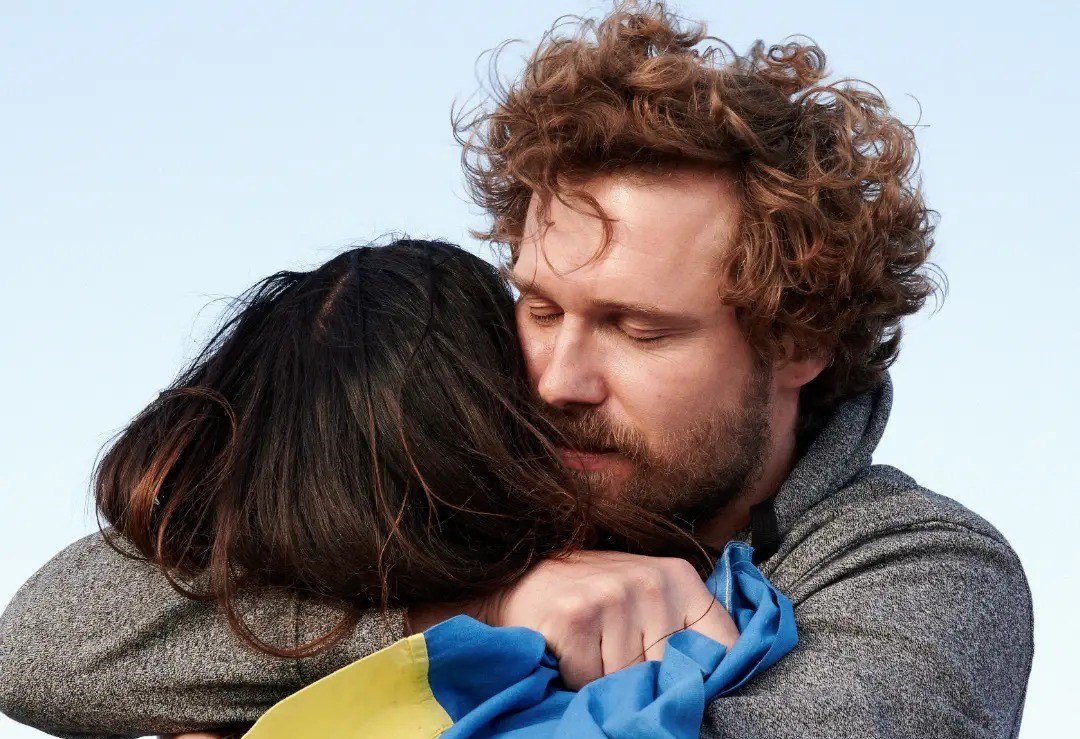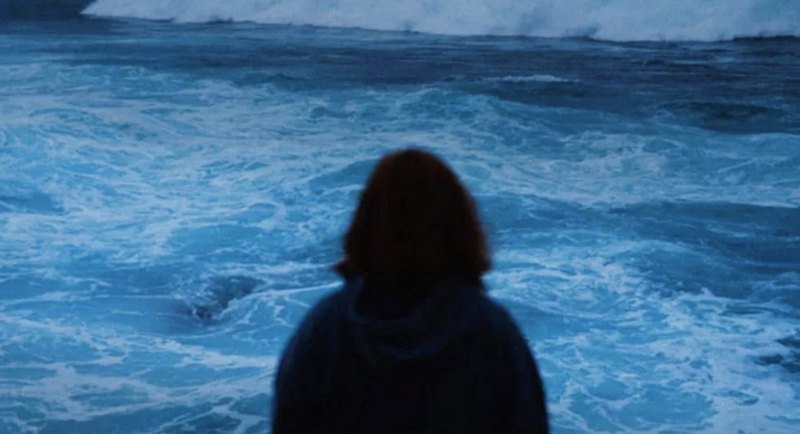Under the Volcano is the second feature film by Polish director and screenwriter Damian Kocur. He co-wrote the story with writer, screenwriter and social activist Marta Konarzewska, and they managed to create a convincing world of Ukrainians who experience the horror of a full-scale invasion remotely, accidentally finding themselves abroad.
Migration, relocation, and foreignness are extremely important to Damian Kocur: in his debut feature Bread and Salt (2022), Polish hoodlums mocked black migrants; in Under the Volcano, one of the characters befriends an African foreigner who has illegally moved to the Canaries at his own peril. Seeing strangers as "our people" and empathising with any human grief is what interests Kocur. His films blur the boundaries of everything nationally conservative and promote the ideas of universal cosmopolitanism and humanism. One world - one civilisation - one person.

Kocur shows the audience how pain unites completely different people: a European and an African, a white girl Sofiya and a black boy Michael, destroying any cultural, social or political boundaries between them. "The problem is that there are a lot of evil people," Sofiya tells her brother, explaining to him the reasons for the existence of zoos. And for Kocur, this explanation is universal. Both Sofiya and Michael suffer from abstract "bad people". And it is this suffering that unites them and makes them close.
There is no point in retelling the plot of Under the Volcano, because the film is based on psychological experiences. Constant quarrels in a Ukrainian family (this collective character is convincingly played by Roman Lutskyy, Anastasiya Karpenko, Sofiya Berezovska, and Fedir Pugachyov), despair and fear of war, confusion, and tears that they try to shed secretly from each other - this is the cinematic plane in which the film's events unfold.
The director actively uses visual techniques to create natural metaphors for the characters' experiences: sea waves crashing on rocks, cold foggy mountains, dark endless night - the cinematography of Mykyta Kuzmenko (The Living Fire, Pamphire) adds an additional symbolic dimension to the film.

So, the family is confused and depressed by the new reality that has burst into their lives: war without war, suffering at the resort. It is this change that is the antagonist of the film: the fireworks that made you smile and clap your hands yesterday now only make you want to run away, covering your ears. Kocur skilfully explores this change, this stress and trauma that the entire Ukrainian nation found itself in February 2022.
At the same time, the director does not resort to pathos, romanticisation or exaggeration: Under the Volcano gives the impression of an honest work that tries to delve into the pain of ordinary people rather than portray powerful superheroes. Kocur refuses to mythologise war, and this makes his film exceptional and important. Currently, Under the Volcano is one of the best films about the psychological consequences of the Russian-Ukrainian war.







